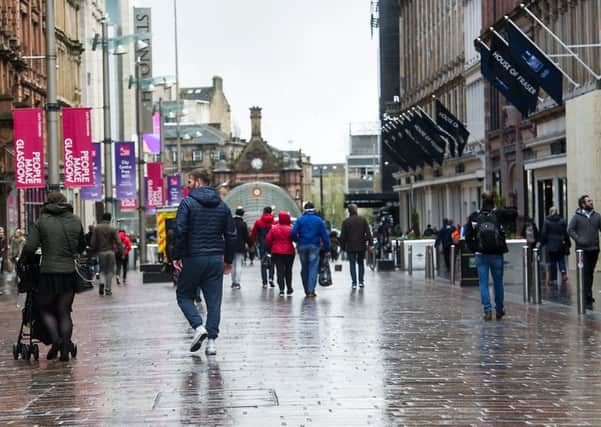Martin Flanagan: Consumers turn cautious as stocks soar
This article contains affiliate links. We may earn a small commission on items purchased through this article, but that does not affect our editorial judgement.


It is in marked contrast to the nonchalance of stock markets in the face of last year’s Trump and Brexit vote shocks, with the Dow Jones index on Wall Street hitting a record high yesterday despite the odds narrowing on a Federal Reserve interest rate rise in the near term.
While rate rises are not normally friends of equities, with businesses and consumers faced with paying more on their borrowings and reducing earnings, Wall Street seems to have decided to place more weight on president Trump’s planned infrastructure splurge and the fact that banks benefit when rates rise.
Advertisement
Hide AdAdvertisement
Hide AdIt may be misguided. Perhaps UK consumers have it about right, with the nascent indications of greater caution on their credit card and term loans commitments.
The Bank data showed that net unsecured consumer credit rose to £1.4 billion in January after slowing markedly to a 19-month low of £984 million in December from a £2bn splurge in November. November’s high water mark – the most vertiginous household debt level since March 2005, three years before the financial crash – came as the UK economy was giving a passable impression of grace under pressure following the UK’s shock summertime Brexit vote.
Why not so much of flashing the magic plastic now? Perhaps because workers are consciously or subconsciously reading the runes and things look chillier.
Inflation is unmistakeably on the rise, and that is likely to squeeze spending power for the rest of 2017, just as companies under the cosh from high input prices due to the slide in sterling will also look to curb pay awards.
Meanwhile, as Trump’s Twitter presidency creates a pervasive sense of unease, even if often masked by humour, a feeling that generally the world seems a noticeably more uncertain place may also persuade people that now is not the time to be carrying excessive debt.
Unsecured credit figures through the spring and early summer will give us a better picture of whether we are seeing consumer volatility or a genuine pulling in of horns.
